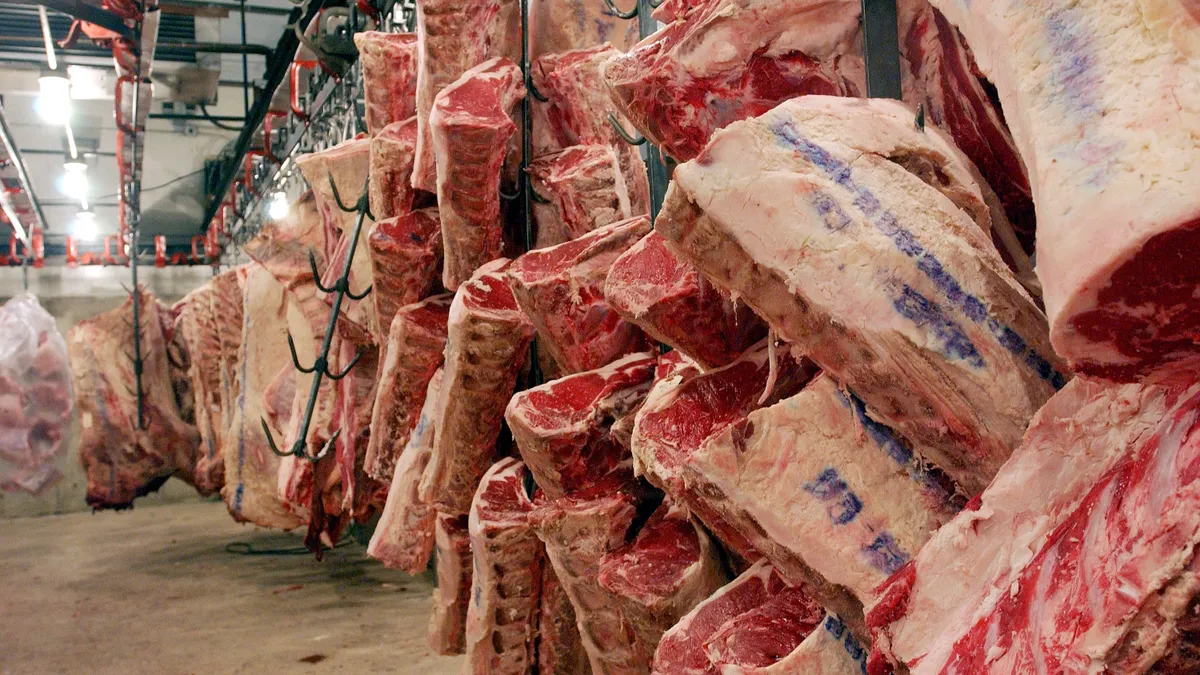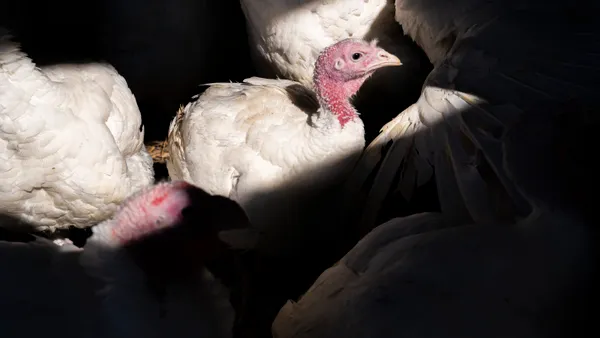Dive Brief:
-
Antitrust claims against JBS and other of the world's largest beef producers were dismissed last week by a Minnesota District Court.
-
A judge ruled that plaintiffs lacked legal standing to pursue their arguments that JBS, Tyson Foods, Cargill and others conspired to widen their profit margins by depressing cattle prices and inflating beef prices.
-
The group of ranchers behind the complaint are prevented from amending their suit unless they submit written justification showing they can correct deficiencies in their case. The dismissal marked a win for the meat industry following millions of dollars spent over the years to settle other antitrust price-fixing claims.
Dive Insight:
Ranchers who indirectly sell their cattle to one or more of the defendants alleged meatpackers conducted market tactics that led to a collapse in fed cattle prices in 2015, which reduced payments during the period. According to the lawsuit, corporate tactics included limiting purchases of cash cattle and closing slaughter plants to manipulate supply-demand dynamics.
In his decision, Minnesota Judge John Tunheim ruled the plaintiffs failed to establish antitrust standing in their claims. He said there are too many stages in the beef supply chain — and too much time between the ranchers’ sale of cattle and their purchase by meatpackers — to adequately establish standing for claims under the Sherman and Packers and Stockyards Acts.
The lawsuit is one of several that have circulated through the Minnesota court alleging the dominant meat packers conspired to artificially influence cattle and beef prices to the detriment of suppliers, retailers and consumers.
Some litigation has led to large payouts. In April, JBS agreed to settle price-fixing claims brought by a group of store consumers for $25 million. The previous year, it settled claims from beef wholesalers for $52.5 million.
Amid rising food costs and prices, the Biden administration has taken steps to crack down on anticompetitive behavior among companies, offering more funds to state attorneys general to take on more complex antitrust cases.
In addition to beef, federal courts have navigated through a bevy of price-fixing litigation regarding chicken and pork.
Last year, the U.S. Department of Justice brought criminal charges against five poultry executives for allegedly conspiring to raise broiler prices for years. After three trials, the executives were found not guilty.











